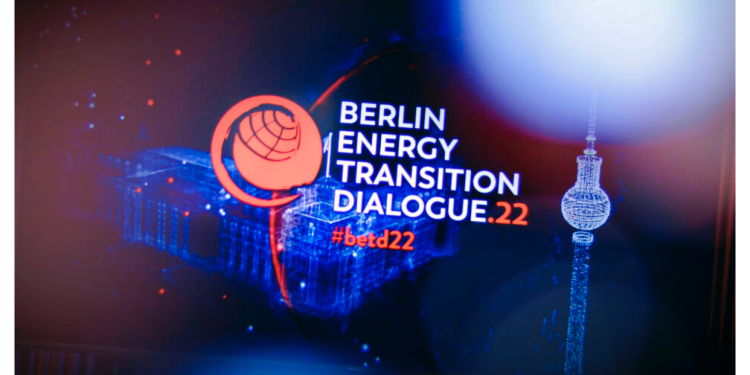During the Berlin Energy Transition Dialogue 2022, stakeholders in the clean energy sector call for urgent action to rapidly shift energy generation to net-zero alternatives and increase energy efficiency.
The 8th Berlin Energy Transition Dialogue was themed “From Ambition to Action” and Foreign and Energy Ministers from more than 50 countries entered into a dialogue on the global energy transition with experts from businesses, research, civil society, and leading representatives of international organisations.
While giving her opening speech, Germany’s Foreign Minister, Annalena Baerbock, said for the international community to meet its pledge to limit global warming to 1.5 or a maximum of 2 degrees, there have to be climate protection measures.
.jpg)
Germany’s Foreign Minister, Annalena Baerbock, during the BETD opening ceremony. Photo Credit: BETD
She said Germany is committed to the global energy transition by helping other countries to forge ahead with their energy transition, which is the aim and object of the new hydrogen diplomacy offices in Nigeria, Angola, and Saudi Arabia.
She further explained while calling for climate protection measures, “Energy transition is impacting geopolitical structures. Renewable energies create independence from fossil fuel producers. Yet the risk of new dependencies emerges, such as on raw materials needed to manufacture batteries or solar panels,” she added in her statement during the opening of BETD.
Francesco La Camera, The Director-General of the International Renewable Energy Agency (IRENA), during the event’s opening said, “We are not on track to stop climate change, and we have to be very aggressive at this stage.”
Mariana Mazzucato, a professor in the economics of innovation and public value at University College London, urged governments to take a new, more holistic approach to economic policy to drive climate action and the energy transition.
She said, “To get from ambition to action, we have to stop being reactive. We have to produce and distribute differently. Governments should not just correct market failures but take new approaches that ensure a value-driven stakeholder economy.
She ended by calling for different governance of public goods, including innovation processes, which are crucial to effective climate action.
The United Kingdom Secretary of State for Business, Energy, and Industrial Strategy, Kwasi Kwarteng, also said the UK plans a home-grown energy system to generate cheaper and greener energy from renewable sources. He said that looking into nuclear power will set out a new energy security strategy in the coming days.
Speaking on the need for a just transition to a renewable, sustainable economy, Kwarteng said such transitions “very often have been lopsided, in the sense that benefits have accrued to a smaller number of people, but this transition has to be one which works for everybody.”
Reacting to the government’s strategy to shape the energy transition plan to define a net-zero one, Nigerian Minister of Power, Aliyu Abubakar, said accelerating energy transition means different things to different regions.
He said the government approach is to strengthen the country’s grid to carry a lot of operational capacity.
“Alongside, we are also developing renewable energies to wrap up the conduit grid. We can only do that if the grid is strong enough to carry that,” he added.



.jpg)